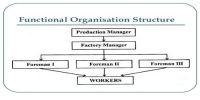Stock repurchases: Stock repurchase is a transaction in which a firm buys back shares of its own stock. Repurchase of stock occurs when a firm buys back outstanding shares of its own common stock. It occurs when a company asks stockholders to tender their shares for repurchase by the company.
Methods of repurchases: There are three methods of repurchases of stocks. These are:
- Fixed price self-tender offer.
- Dutch auction methods.
- Open market purchases.
Advantages: Many companies initiate a share repurchase at a price level that management deems a good entry point. Advantages of stock repurchase are given below –
- It is a possibility to increase income per unit.
- A possibility of the price increase.
- Inform investors about the future price increase.
- Price reduces of share.
- The shareholder may capital gain.
Disadvantages: From an investor’s perspective, a cash dividend is dependable; a stock repurchase, however, is not. Disadvantages of stockholder are given below –
- Investors like dividend that’s why they don’t feel encouraged to repurchases.
- If a company repurchases more, then the investor may be fallen loss.
- If a company earns stock more by repurchases then corporate governance may be a hindrance.














